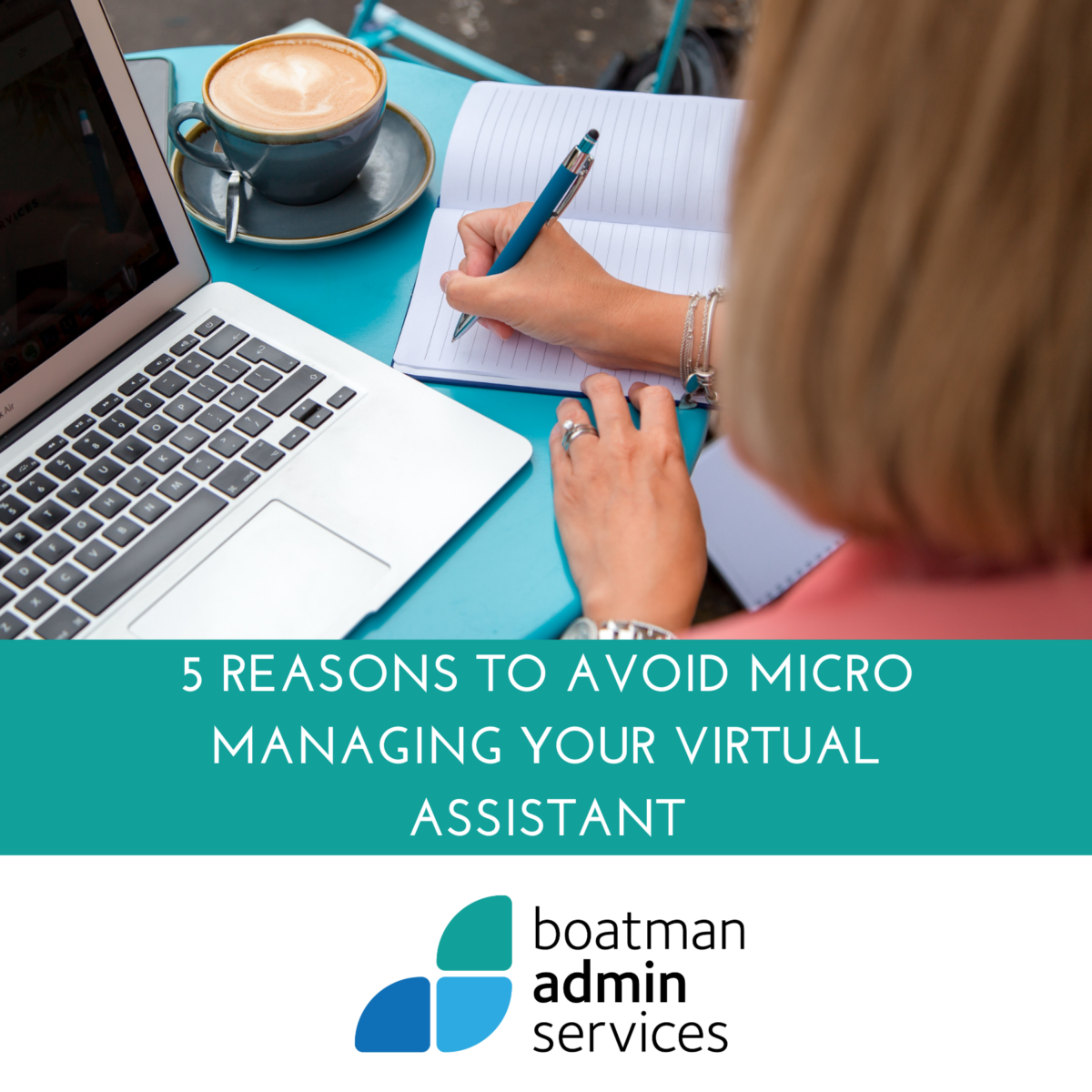When it comes to managing a virtual assistant (VA), it’s important to strike a balance between providing guidance and micromanaging. While it’s natural to want to have control over every aspect of your business, micromanaging can actually have negative consequences for both you and your VA.
If you’re not sure if you’re a micro-manager, it’s essentially when you get involved in the smaller details that should be handled by the VA. You need to be able to allow your VA to have autonomy to get the work done – after all, this is why you outsourced so that you could concentrate on other things!
Here are some reasons why you should avoid micromanaging your VA:
- It can lead to decreased productivity: If you’re constantly checking in on your VA and giving them specific instructions, they may feel like they can’t work independently. This can lead to them feeling demotivated and less productive.
- It can hinder creativity and innovation: By micromanaging, you’re limiting your VA’s ability to think outside of the box and come up with new and creative ideas. You may be missing out on valuable insights and perspectives that they could bring to the table.
- It can create tension and mistrust: If your VA feels like they’re being watched closely and judged, it can lead to a breakdown in trust and communication. This can create a toxic work environment that can harm the relationship between you and your VA.
- It can be time-consuming: Micromanaging can be time-consuming for both you and your VA. Instead of focusing on more important tasks, you may find yourself spending a lot of time on small details that could be handled by your VA.
- It can lead to burnout: Constantly monitoring and controlling your VA’s work can lead to burnout for both of you. It’s important to remember that your VA is a professional who can handle their work and you should trust them to do so.
An alternative approach to micro managing is called “macro managing”, which involves giving your VA more autonomy and trust. Instead of closely monitoring and controlling their work, a macro manager sets clear expectations and goals, and then allows the VA to use their own initiative and creativity to achieve those goals. This approach can lead to increased employee motivation, engagement, and satisfaction, and can also improve job performance.
In conclusion, micromanaging your VA can lead to decreased productivity, hinder creativity and innovation, create tension and mistrust, be time-consuming and lead to burnout.
Instead, it’s important to set clear expectations, provide guidance and trust your VA to handle their work. This will not only benefit your VA but also your business in the long run.
If you’re looking for some tips, helpful hints and advice to help free up your time, sign up to our newsletter







